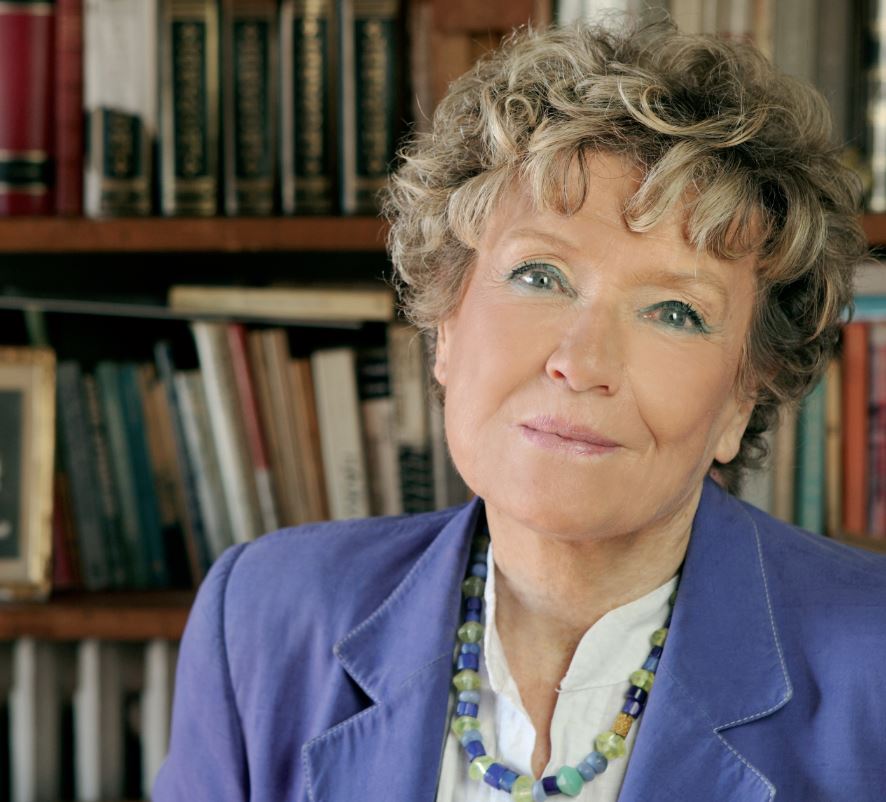Italian author and lifelong feminist Dacia Maraini recently discussed women’s rights virtually at an International Women’s Day event. Photo from acri.it.
Dacia Maraini, an Italian writer, essayist and playwright, has been writing and advocating for women’s rights before Billie Jean King beat Bobby Riggs in “The Battle of the Sexes.”
On March 3, the University of Rhode Island hosted a virtual event to commemorate International Women’s Day with Maraini, who discussed various topics involving women’s rights through her work as a writer and also through her own personal stories.
This is the fourth year that URI has held this event, and Maraini has been the keynote speaker each time. According to Michelangelo La Luna, who organized the event, Maraini has been writing novels, articles, essays and plays for over 60 years. Throughout her time as a writer, she has been an advocate for women’s rights.
“Maraini is a symbol of what International Women’s Day stands for,” La Luna said. “Maraini says we don’t have to remember about women only on this day, only on March 8, but of course we chose March for this reason because it falls under Women’s History Month.”
The event, which took place over Zoom, had around 100 participants present. Nedra Reynolds, the associate dean for the College of Arts and Science, opened the event by talking about the importance of International Women’s Day and introduced Maraini.
“A fiction writer of novels and short stories, Maraini is also a poet and a prolific playwright,” Reynolds said. “As a feminist author, her literary works serve as a study of the role of women within their respective societies. Beyond her writings, Ms. Maraini is an embodiment of her independence, including her resistance to the cultural expectation that women of her generation should marry early and stay married for life.”
In addition to the featured speaker, Dacia Maraini, there were also other scholars who attended the event to discuss their backgrounds and ask Maraini questions about her life, her thoughts and her work. The majority of the event consisted of a question and answer session between Maraini and the scholars.
Following the question and answer session, breakout rooms were opened for about ten minutes that all covered a different topic. Participants could choose what breakout room they attended, and also switch between different breakout rooms if they wanted to. These breakout rooms gave students the opportunity to speak directly to the scholars and engage in conversations in a smaller setting.
The scholars, who were from all around the world, included Esther Basile from the Philosophical Institute of Naples, Ombretta Frau from Mount Holyoke College and Laura Fortini from Universitá Degli Studi Roma Tre.
Following the breakout sessions, the question and answer session between Maraini and the scholars continued. Maraini picked up the talk by discussing her childhood and past, as well as using her work to discuss other topics.
She talked about how when she was younger, she started to feel like she couldn’t just sit back and watch when she saw an injustice. She saw the importance of fighting for not only her rights, but for the rights of others as well.
Maraini also discussed the word “feminist” and how many young people today don’t like to use the word even though they feel very strongly about women’s rights.
“They believe that rights are there forever,” she said. “They never think that they could lose these rights. I tell them, ‘think again, because the rights are not there forever.’ If you don’t defend them, they can be stolen.”
She also talked about her life and how things like her travels have changed due to COVID-19. She has found that the concept of time has changed a lot for her, and because she is doing the same thing every day, the time becomes shorter and shorter.
This event brought together a large group of scholars and students to talk about issues of the world’s past and present through Maraini’s books and her own personal stories relating to female empowerment.





